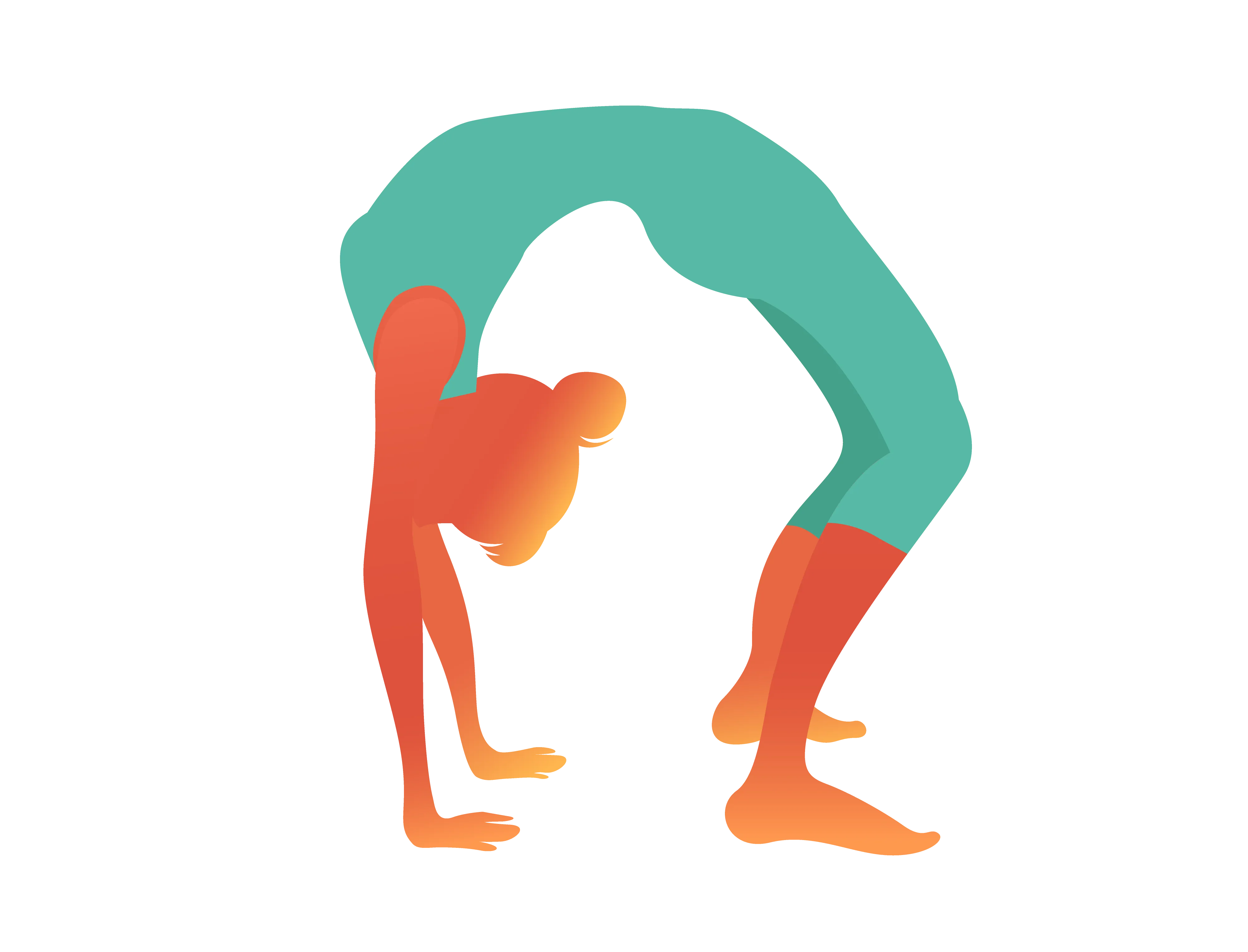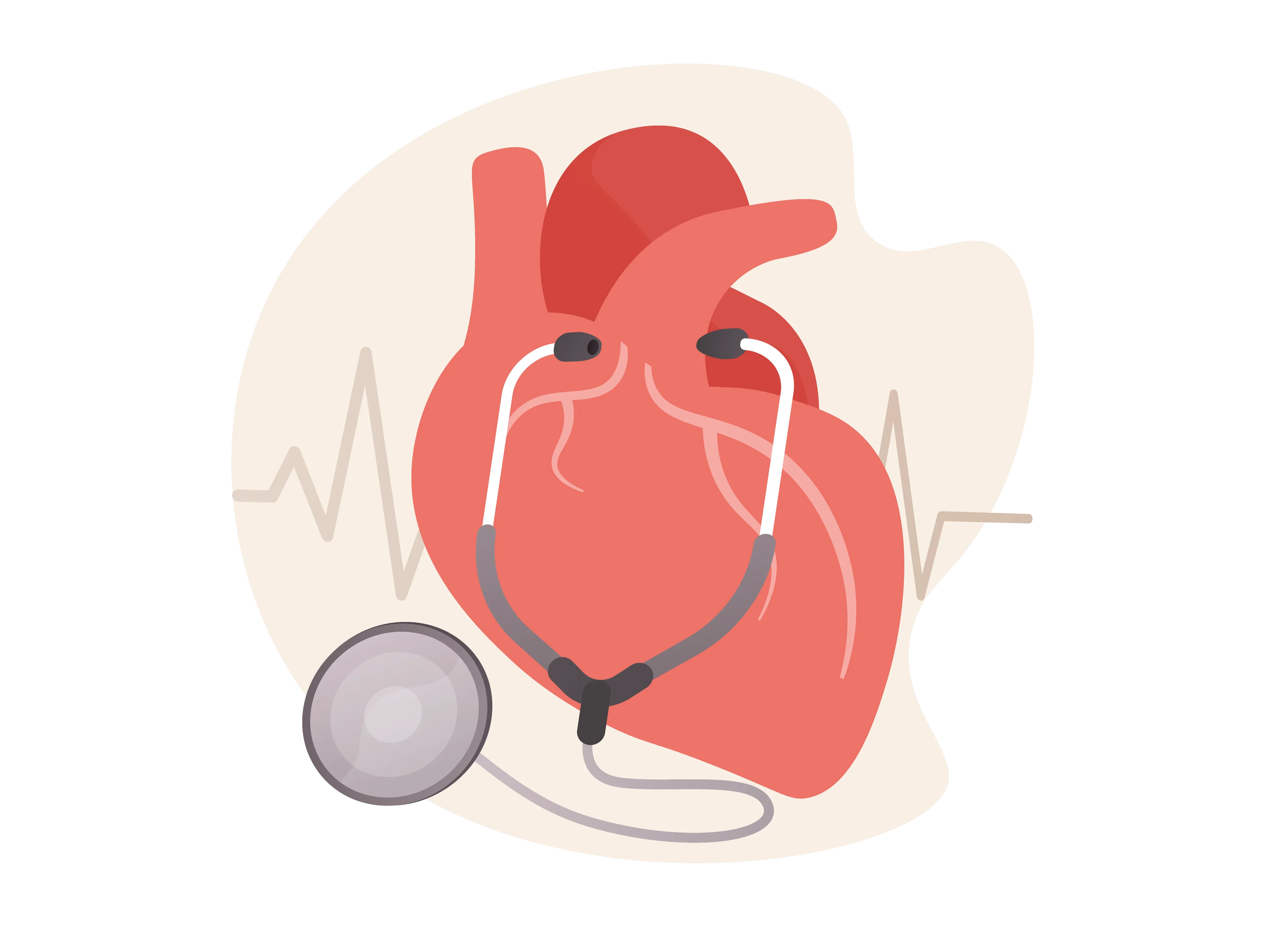Cholesterol | 9 min read
Top 10 Yoga Poses For Cholesterol Control and Management
Medically reviewed by
Table of Content
Key Takeaways
- Doing yoga to lower cholesterol is an effective strategy you can try
- The seated spinal twist pose can stimulate the liver and bring cholesterol down
- The wheel pose stimulates your abdomen to lower cholesterol levels
Yoga is a versatile form of exercise that helps boost your physical stamina and mental balance. Research suggests that yoga can be beneficial in managing cholesterol levels too. In Indian culture, yoga has been a part of a fit and healthy lifestyle for centuries. So, it is no surprise that it can also be used to reduce your cholesterol levels.
High cholesterol can be caused due to a variety of reasons, like diet, weight, genetics, and age. Yoga can be practiced by anybody, irrespective of these factors. Read on to learn more about the top 5 yoga poses that are said to be most beneficial for cholesterol control.
Yoga For Cholesterol Benefits
Though yoga originated in India, it has received a lot of interest globally and is currently accepted as a popular method of healing that is complementary to modern medicine [1]. Yoga has many benefits when practiced regularly. It can also address specific ailments, and you can do yoga to lower cholesterol too. Yoga helps reduce cholesterol in a variety of ways like affecting lipid profiles [2] and reducing stress hormones.
Here are a few of the benefits of doing yoga to reduce cholesterol.
- Increases physical stamina and mental stability: This helps you move beyond a sedentary lifestyle and become more active and healthier. It also helps you become calmer and more centered.
- Influences the endocrine system: This can stimulate weight loss and provide more energy.
- Affects lipid profiles: A 2019 study [2] showed that women who practiced yoga thrice a week for 26 weeks consecutively saw a reduction in total cholesterol levels and LDL (low density lipoproteins) levels in the body.
Additional Read: Importance of Yoga in Modern Life
Yoga Poses For Cholesterol Control
Seated forward bend
This action could ease stress and aid digestion.
- Sit down and extend your legs straight in front of you to begin. On a blanket or towel that has been folded, you can sit upright.
- Expand your spine as you inhale.
- Exhale and begin to bend over your legs gradually. Consider moving from the hips rather than the waist. Your head should be held high, and your back should be flat. If you experience any back pain when folding, stop immediately.
- Continue to reach towards your feet or ankles while taking deep breaths, only extending as far as is comfortable for you.
- Depending on how comfortable you are, maintain the posture for 1 to 3 minutes.
Child's Pose
This action promotes profound relaxation and reduces stress.
- Kneel down at first, leaning back towards your feet.
- Lay down with your body between your thighs and your knees spaced out as widely as your hips.
- Keep your arms at your sides with your palms facing up. You could also put your hands down on the floor in front of you while extending your arms.
- Breathe easily both in and out.
- Hold for between 30 seconds and 3 minutes.
Spinal twist while seated
This action might promote normal digestion.
- Start by sitting up straight, crossing your right leg across your left leg with the sole of your right foot on the floor, and keeping your left leg bent on the floor with the heel by your right hip.
- With your left hand raised towards the ceiling, elongate your spine.
- Start to turn to the right until your left elbow is outside your right knee.
- Inhale for additional length and exhale for a deeper twist.
- Hold for 30 to 60 seconds before switching to the opposite side.
Wheel pose
The wheel is a more advanced pose that is best suited to more experienced yogis. Before performing wheel posture, your spine needs to be warmed up. The wheel stance could benefit the body's openness and vigour.
- Begin by lying on your back with your feet flat on the ground, and your knees bent and spaced apart by hips. Stretch your arms out on the floor close to your body, fingertips touching your heels.
- Put your hands beneath your shoulders and firmly press them into the mat. Keep your elbows close together.
- Inhale as you press down into your feet and hands, and exhale as you press up, first to the top of your head and pause. Replace your arm bones into your shoulder socket.
- Lift up into a full wheel while pushing onto your arms. If you're first learning the posture, your arms can be bent. As you relax your head, continue to lift your chest.
- Take several long breaths. Step your feet forward when you're prepared to come down. Roll your spine down one vertebra at a time while tucking your chin towards your chest.
- For a few breaths, bring your knees together and spread your feet.
- If desired, repeat up to three times.
Legs up the wall
This posture promotes heart-healthy blood flow. Additionally, it might ease anxiety, regulate blood pressure, and benefit a number of other medical ailments.
- Place your yoga mat next to the wall. To get into the proper position, sit to the side with your shoulder against the wall.
- Your legs should be extended up the wall while you lay on your back on your mat. As required, move in closer.
- For 1-2 minutes, or for as long as it is comfortable for you, remain in this inverted position. Inhale and exhale.
- When you're ready to release, slowly lower your legs from the wall while bringing your knees close to your chest.
- Rock back and forth a few times before releasing.

Kapalbhati Pranayama
One of the most popular breathing techniques, this increases your metabolic rate and lung capacity. It also improves blood circulation and aids digestion.
Sit in a comfortable position. Take a deep inhale and pull your stomach inwards when you exhale and keep it tight. Relax your muscles while exhaling. Do not strain yourself. Repeat as many times as you are comfortable. A set of 20 repetitions commonly makes one round. Do at least 5 rounds.
Ardha Matsyendrasana
The seated spinal twist pose stimulates your abdominal muscles and liver and helps with digestion.
Sit upright with your right leg bent, with the heel next to your hip. Keep your left leg crossed over the first, resting the sole on the floor. Raise your right hand straight up, and twist towards your left. Twist till your right elbow is crossed over your left knee. Hold this position for a minute or so. Repeat on the other side. You can do this in two or three sets.
Chakrasana
This wheel pose is recommended for people who have been practicing yoga for a while. Beginners may not be well suited for this pose. This asana helps with digestion, stimulates your abdominal muscles, strengthens the body, and stimulates the liver. Liver stimulation is an important factor as improved liver function leads to more efficient removal of cholesterol from the body.
Start by lying on your back, with bent knees and feet planted on the floor. Stretch your arms out on the floor. Move your hands so that they are under your shoulders, with hands facing away from you and press them down. Press down your feet and push yourself up. Relax your head and lift your chest. Inhale and exhale a few times, and then lower yourself down.
Additional Read: Yoga For Strength
Paschimottasana
The benefits of the seated forward bend pose are many. They include liver and kidney stimulation, stress reduction, and better digestion. This pose also helps in weight reduction, which helps lower cholesterol in the body.
Start in a seated position. Keeps your legs straight. Inhale and slowly exhale while bending forward. Keep your back flat. Do not push yourself if you experience any pain. Only fold as far as you feel comfortable doing so. Hold the pose as long as you can comfortably manage it. One to three minutes is a good range to try out if you can do so.
Sarvangasana
Many poses recommended for managing cholesterol levels work by stimulating your abdominal muscles and improving digestion. In addition to these, the shoulder stand also affects the functioning of the endocrine system and increasing spinal flexibility.
Lie on your back and lift your legs and back. Support your back above your waist with your hands. Keep your legs firm and lift your heels. Your body weight is to be supported by your shoulders and arms. Do not strain your head or neck muscles. If you feel any strain, stop and come back to the floor position.
How Yoga Affects Cholesterol Levels?
Only a small number of clinical research have examined the impact of yoga on lipid (blood fat) levels, but the findings are encouraging. The levels of total cholesterol were decreased by up to 30% in some study participants. In these studies, low-density lipoproteins (LDLs), also known as "bad" cholesterol, were reduced from 14% to 35%. However, yoga's capacity to increase levels of high-density lipoproteins (HDLs), or "good" cholesterol and triglycerides, appears to differ. According to certain research, HDL levels rose up to 12%, while triglyceride levels decreased by up to 11%. However, in other research, yoga did not affect participants' HDL and triglyceride levels. These studies ranged in length from two months to five years, and the types of yoga the study participants practised also varied greatly. These included Hatha Yoga, which emphasises mild stretching and meditation, and Sudarshan Kriya, which combines rhythmic breathing exercises. Up to three times each week, this yoga to control cholesterol was performed for a duration of 30 minutes to three hours.
Yoga Lifestyle and Cholesterol
Many people might desire to include other aspects of yoga into their lifestyle after using it as a form of exercise for a while.
People who switch to a plant-based diet frequently consume fewer calories throughout the course of the day. This can result in little weight loss when combined with yoga-inspired activity. Although losing 5, 10, or 15 pounds may not seem like a lot of weight or like a big change, it can have a major influence on someone's cholesterol levels. When you switch to a plant-based diet, you eliminate some dairy and animal products that may raise your cholesterol. Saturated fat, which is predominantly present in foods derived from animals, affects cholesterol levels. Increasing the intake of foods high in soluble fibre, such as oats or plant sterols, also lowers cholesterol. It is because soluble fibres aid in the removal of cholesterol from the body by binding to it.
Whether you want to incorporate yoga into your daily life or merely spice up your training schedule, yoga for cholesterol has numerous advantages.
As an alternative form of healing, yoga for high cholesterol is a good way to address and control cholesterol. Practicing yoga regularly will help your efforts to reach normal cholesterol levels. Many doctors support supplementary healthcare practices like yoga. To learn more, you can book doctor consultations on Bajaj Finserv Health. With the advice of a specialist, you can continue with yoga and supplementary medicines to reduce cholesterol with ease.
References
- https://www.ncbi.nlm.nih.gov/pmc/articles/PMC4605382/
- https://www.ncbi.nlm.nih.gov/pmc/articles/PMC6547799/
Disclaimer
Please note that this article is solely meant for informational purposes and Bajaj Finserv Health Limited (“BFHL”) does not shoulder any responsibility of the views/advice/information expressed/given by the writer/reviewer/originator. This article should not be considered as a substitute for any medical advice, diagnosis or treatment. Always consult with your trusted physician/qualified healthcare professional to evaluate your medical condition. The above article has been reviewed by a qualified doctor and BFHL is not responsible for any damages for any information or services provided by any third party.



